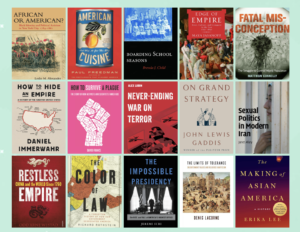Transitions: When Hope & History Rhyme

 David Coleman, lead author of the Common Core English standards, will lead the College Board beginning in October. David told the Times, “The College Board is not just about measuring and testing, but designing high-quality curriculum.” That’s something Coleman knows well. Before launching Student Achievement Partners, Coleman developed Grow Network, a reporting system which interpreted results of state standardized tests for parents and teachers, which he sold to McGraw-Hill. Coleman is a brilliant scholar, a passionate advocate, and an inspired choice for the important role.
David Coleman, lead author of the Common Core English standards, will lead the College Board beginning in October. David told the Times, “The College Board is not just about measuring and testing, but designing high-quality curriculum.” That’s something Coleman knows well. Before launching Student Achievement Partners, Coleman developed Grow Network, a reporting system which interpreted results of state standardized tests for parents and teachers, which he sold to McGraw-Hill. Coleman is a brilliant scholar, a passionate advocate, and an inspired choice for the important role.
Gaston Caperton has led the College Board through steady growth for a decade. College Board is an unwieldy membership organization, but Gaston has encouraged the place to be more entrepreneurial while holding fast to it’s commitment to equity and access.
Speaking of talented former West Virginia governors, Bob Wise and I spoke at a KnowledgeWorks Foundation dinner tonight in honor of retired president Chad Wick. The dinner was held in the spectacular National Underground Railroad Freedom Center in Cincinnati, Ohio.
Funded 12 years ago by the sale of a student loan portfolio (like Lumina) KnowledgeWorks has been a regional leader in high school improvement and a leading advocate of early college high schools (US News recognized 5 of their schools last week).
Chad pushed KnowledgeWorks to re-frame the education challenge. Their 2020 Forecast has pushed schools around the country to consider the world our children will inherit and the implications of the changes occurring around us.
More recently, with encouragement of the new CEO Brian Ross, KnowledgeWorks has been a leader in digital learning. They are hosting a digital learning summit in Columbus,Ohio tomorrow (5/17). I’ll be leading a panel with Susan Patrick, Bryan Hassel, and Karen Cator.
Chad is a bright guy with a curious brain and a heart for equity (but more about that on Sunday in my next Good Work post). Chad closed the dinner with one of my favorite poems from Seamus Heaney.
From The Cure at Troy
Human beings suffer,
They torture one another,
They get hurt and get hard.
No poem or play or song
Can fully right a wrong
Inflicted and endured.
History says, Don’t hope
On this side of the grave.
But then, once in a lifetime
The longed-for tidal wave
Of justice can rise up,
And hope and history rhyme.
So hope for a great sea-change
On the far side of revenge.
Believe that a further shore
Is reachable from here.
Believe in miracles
And cures and healing wells.
Call miracle self-healing:
The utter, self-revealing
Double-take of feeling.
If there’s fire on the mountain
Or lightning and storm
And a god speaks from the sky
That means someone is hearing
The outcry and the birth-cry
Of new life at its term.
It means once in a lifetime
That justice can rise up
And hope and history rhyme.






0 Comments
Leave a Comment
Your email address will not be published. All fields are required.